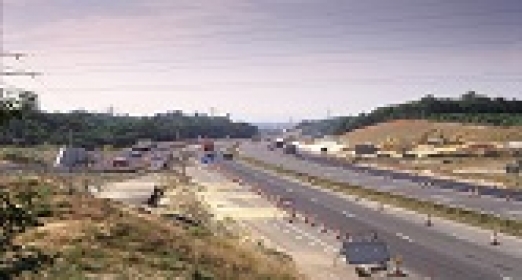Landmark research shows scant evidence that road schemes produce economic benefits, but that they increase traffic dramatically and damage the countryside.
New research published by the Campaign to Protect Rural England (CPRE) today reveals that road-building is failing to provide the congestion relief and economic boost promised, while devastating the environment
The research, the largest ever independent review of completed road schemes in England, arrives as Highways England starts consulting on which road schemes will receive funding, set to triple to £3 billion a year by 2020. Here in Somerset, Highways England are currently consulting on widening the A303 from Sparkford to Ilchester and also plan to create a dual carriageway link from the M5 motorway near Taunton to the A303, as part of a long-term commitment to creating an expressway to the south west.
Drawing on the research, CPRE’s report The end of the road? directly challenges government claims that ‘the economic gains from road investment are beyond doubt’; that road-building will lead to ‘mile a minute’ journeys; and that the impact on the environment will be limited ‘as far as possible’. The report shows how road building over the past two decades has repeatedly failed to live up to similar aims.
Traffic was found to increase much more in road corridors with new schemes than background traffic in the surrounding area. Schemes completed eight to 20 years ago demonstrated a traffic increase of 47%, while traffic more than doubled in one scheme. All new schemes put pressure on adjoining roads, while there were negligible reductions in journey times. We repeatedly see the cycle of more roads generating more traffic and congestion which leads to demands for more roads; in other words, building roads leads to building more roads.
Road schemes failed to deliver the boost to jobs and local economies so often promised. Of roads promoted for their benefits to the local economy, just one in five demonstrated any evidence at all of economic benefit, and that was weak.
Overall, there was evidence that 80% of schemes built damaged the surrounding environment. The case studies also revealed specific examples where attempts to protect rare animals and plants failed.
Chair of CPRE Somerset branch, Chris Lewis said: “We are seeing a prime example of this flawed transport policy here in South Somerset, where the Highways Agency is consulting on two options to widen the A303 from Sparkford to Ilchester. One of these options would destroy high quality farmland in a peaceful valley and disturb ancient woodland and registered parkland. The other option would follow the existing route but is hugely expensive and leaves many unanswered questions about how much land will be taken up, the effect on local communities and what, if any, economic impact there will be for this part of Somerset. CPRE Somerset rejects both options and would prefer to see any funding invested in repairing potholes in our existing roads, noise mitigation measures and supporting sustainable transport.”
Ralph Smyth, head of infrastructure and legal at the Campaign to Protect Rural England (CPRE), said:“The Government is keen to sell the biggest road-building programme since the 1970s, but this is a programme that will forever fail on its own terms, producing a depressing, self-perpetuating cycle of more and more roads that do little for the economy and harm the countryside. This landmark research shows that any benefits from road building are far smaller than thought but the harm much worse. The Road Investment Strategy needs to be reset – not receive three times more funding. Rather than looking to the past, the Government must invest in a forward looking mobility strategy that puts quality of life ahead of the car. The Government should reopen old rail lines, offer people travel options in town and countryside, and harness new technology to make more efficient use of road space. It should promote new housing on brownfield sites closer to jobs and services, rather than unleash car-dependent sprawl on green fields. We are seemingly stuck in an ideological traffic jam from which we cannot escape. Building ever bigger roads should be the last resort – not the default choice.

